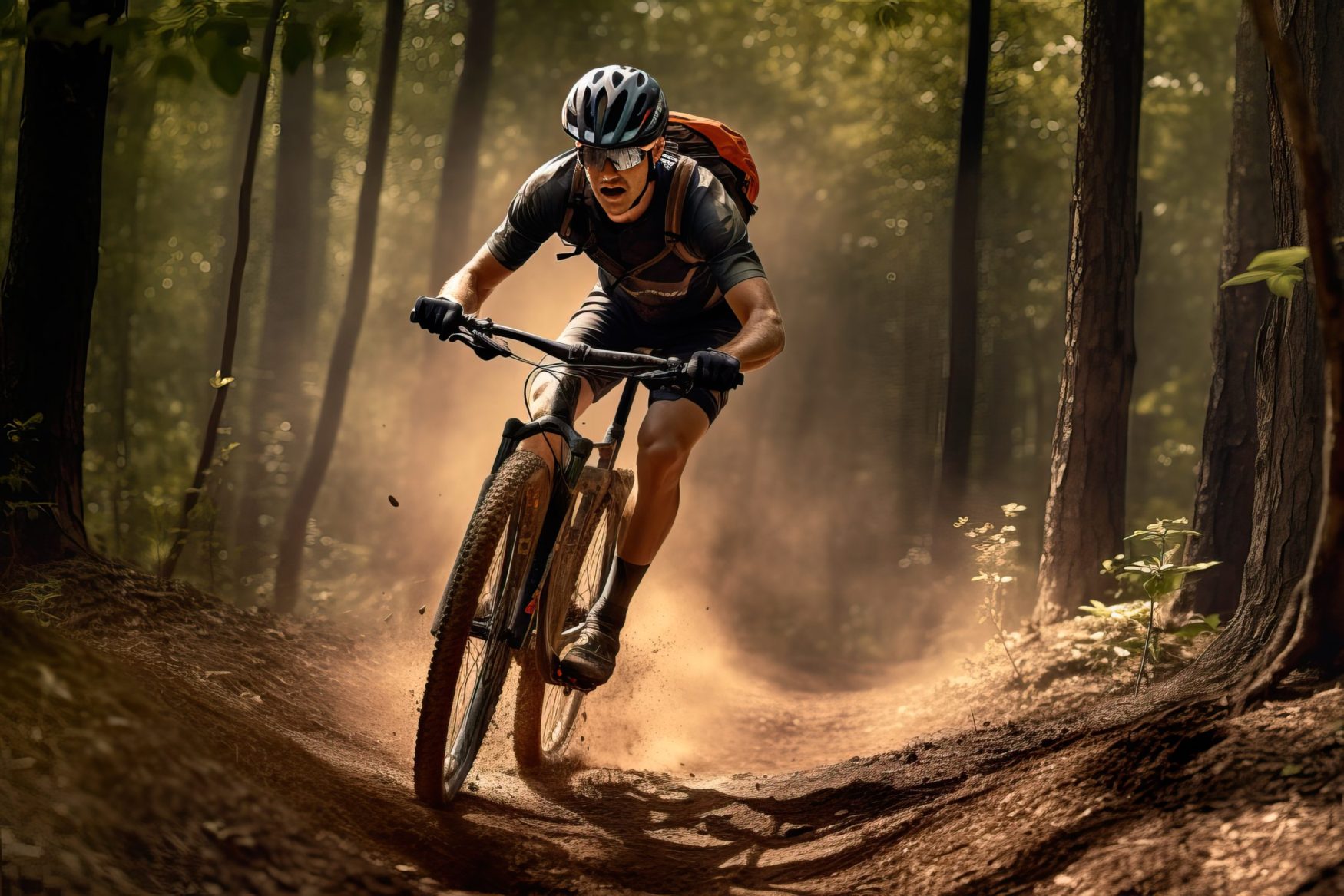Phil Black remembers back when there were no mountain bike trails in the early 1990s. Back then, mountain biking meant earning your downhill turns by traveling up old logging roads, carriage roads and dirt roads.
There were no trail maps or cell phones — and that was part of the fun.
“I love being lost in the woods,” Black said.
Now, mountain biking has evolved to become a fast downhill sport with jumps, bridges and tight turns.
“These are roller coasters essentially made of dirt through the woods,” Black said. “They’re fast and we just never had speed like that. We never hit 30 miles per hour. Now you hit the park, you’re hitting 38 everyday. It’s a totally different experience — the trails, the bikes, they’re just so competent.”
Black, the owner of the Lookout Tavern in Killington, started mountain biking about 30 years ago. He was in the service at the time and cycling was an alternative to running and “a little vindication” toward his friends, who often beat him in running.
“It was something I could do easily and destroy all the tall, skinny guys,” Black said. “They would destroy me all week on runs.”
Black and a few of his friends founded the Killington Mountain Bike Club 30 years ago. Black was among the first to enter the modern day mountain bike scene in Killington. Black and his friends rode together every Tuesday night — a tradition they’ve kept ever since, and even expanded to include anyone in the community.
“Even though we’re old men now we still go out and thrash around every Tuesday and think we’re young,” Black said.
Black has worked to get people interested in the sport for the past 24 years, when he started hosting a weekly ride from his Lookout Tavern followed by a free meal.
There were 8-9 people— mostly men back then. Now, there are about 50 people of all age groups.
“It’s gotten much bigger,” he said. “It was just men, then women, now it’s families. It’s a good reflection of the bike experience in general. It’s become a family activity.”
The group rides for about two hours and then returns for drinks and food, like cheese steaks and a salad.
“It’s always been a night that we enjoy,” Black said. “I get to go out and hang out with my buddies. It’s pretty much the only night we get to ride together.”
Black has watched as the sport has soared in popularity with extensive trail building and new equipment.
The landscape of mountain biking in Vermont has grown significantly in the past decade, emerging as the state’s most rapidly expanding outdoor recreational activity. The state saw a surge in 2022, as indicated by TrailForks’ recording of over 580,000 ride logs — a figure that has more than doubled since before the pandemic.
Parallel to this trend, the Vermont Mountain Bike Association (VMBA) has become the largest state mountain biking advocacy group in the nation. There are about 29 local mountain bike chapters in Vermont and VMBA has nearly 10,000 members.
The expanse has far surpassed Black’s expectations — especially for a town long dominated by the winter sport scene.
“It’s unbelievable. It’s hard to even fathom,” Black said. “Having the second alpine sport that they jump right into after putting the skis or snowboard away I think is amazing.”
The state has also partnered with Vermont Adaptive to make mountain biking trails wider and more accessible to all abilities — a topic Black is passionate about.
Just before the pandemic, Black raised $16,000 in a charity golf tournament and donated three different types of adaptive mountain bikes as well as a trailer to Vermont Adaptive to help make the sport more accessible.
Black expects mountain biking will return to its pedal-experience roots.
Black is the co-owner of Base Camp Outfitters, a ski and bike shop and mountain bike hub that has a 15-mile trail system focused on the pedal experience — where going uphill is just as fun as going downhill.
“It’s kind of a lost art these days,” Black said. “(The trails) fill a portion of the market that we’ve not had in the 8-9 years. It helps the town, it helps the resort.”
Black rides three days a week now, mostly in Killington, Slate Valley and Woodstock. He still appreciates where mountain biking came from and its simplicity. He still takes his 30-year-old bike on class 3 and class 4 roads — just for fun.
“I have no idea how we rode these things,” he said. “They have small wheels that don’t roll over everything.”

